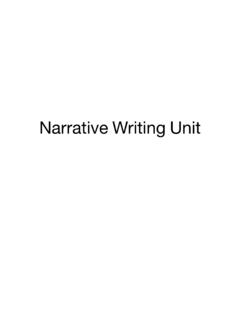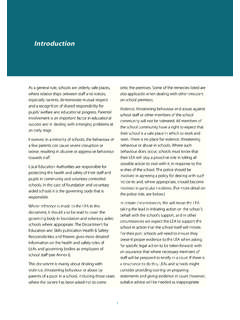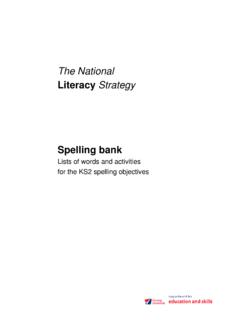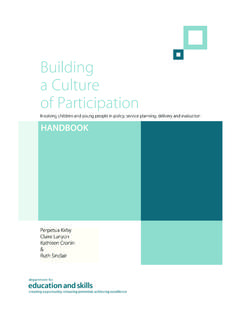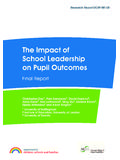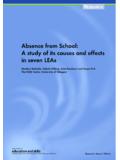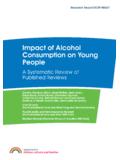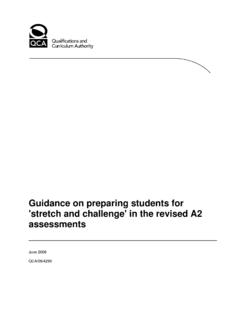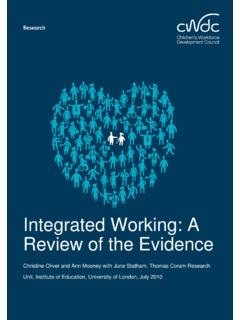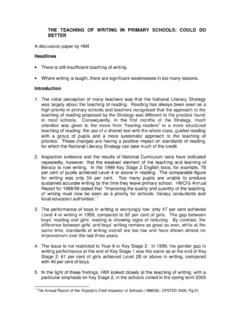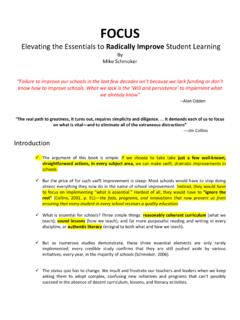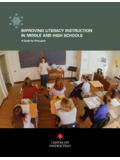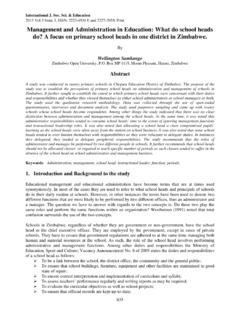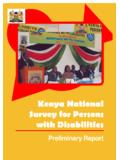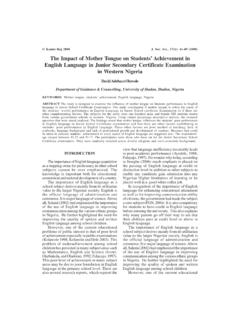Transcription of Raising Boys’ Achievement - UCL Institute of …
1 R ESEARCH. Raising boys ' Achievement Mike Younger and Molly Warrington with John Gray, Jean Rudduck, Ros McLellan, Eva Bearne, Ruth Kershner and Pat Bricheno University of Cambridge Faculty of Education Research Report RR636. Research Report No 636. Raising boys ' Achievement Mike Younger and Molly Warrington with John Gray, Jean Rudduck, Ros McLellan, Eva Bearne, Ruth Kershner and Pat Bricheno University of Cambridge Faculty of Education The views expressed in this report are the authors' and do not necessarily reflect those of the Department for Education and Skills. Queen's Printer and Controller of HMSO 2005. Published with the permission of DfES on behalf of the Controller of Her Majesty's Stationery Office.
2 Applications for reproduction should be made in writing to The Crown Copyright Unit, Her Majesty's Stationery Office, St Clements House, 2-16 Colegate, Norwich NR3 1BQ. ISBN 1 84478 458 4. Table of Contents ACKNOWLEDGEMENTS .. 7. EXECUTIVE SUMMARY .. 8. boys ' Under- Achievement ' ? .. 8. Intervention Strategies .. 9. Pedagogic 9. Individual approaches .. 11. Whole school organisational 12. Socio-cultural 12. Interventions within Special 14. The Broader Issues .. 14. Conclusion .. 14. CHAPTER 1: The Context of the Project .. 16. Why Differential Achievement ?.. 17. Which boys ? Which Girls? .. 18. CHAPTER 2: The Gender Gap: Dilemmas and Debates .. 20. The Nature of the Gender 20.
3 Interpreting the Gender Gap: the case for care and vigilance .. 25. Concluding Comments .. 27. CHAPTER 3: Intervention Strategies .. 28. The Project's Framework and 28. The Outcomes of the Pilot 29. Research Design for the Intervention Stage .. 31. Selection of schools .. 31. The research strategy: aim .. 33. The research strategy: process .. 33. CHAPTER 4: Pedagogy I: Raising Achievement in Literacy at Key Stage 36. Approaches to Literacy: processes and 36. Case study 37. The background .. 37. Reading involving homes and 37. Assessing progress in reading at key stage 39. 2. Extending the strategy .. 40. Case Study 2 .. 42. The background .. 42. A whole school 42. Becoming a 43.
4 The importance of 44. Classroom approaches to support boys ' 45. Case Study 3 .. 46. The background .. 46. Improving writing through 47. Assessing progress in writing and drama .. 47. The extension 48. Evidence for drama leading to better writing: effects on writers and writing .. 49. Classroom practices .. 50. Factors which supported curriculum development: across 50. Overview .. 51. CHAPTER 5: Pedagogy II: Issues about Teaching-Learning 53. Teaching Learning Styles .. 54. Case Study 1: Accessing Kinaesthetic Learners more effectively .. 54. Impact .. 56. Case Study 2: An approach based around multiple 57. The Nature of the 58. Outcomes in the Originator School: Patterns of 58.
5 Outcomes in the Originator School: Students' Views and Perspectives from the 59. The Intervention within one Partner School .. 60. Case Study 3: A Primary 61. Impact .. 63. Reflections on Pedagogic Approaches Focusing on Preferred Learning 64. Important Pre-Conditions .. 66. CHAPTER 6: The Context of the Individual: Target-Setting and 68. Target-Setting and Mentoring within the Raising boys ' Achievement Project .. 68. Case Study 1 .. 69. 3. The background: .. 69. Case Study 2 .. 70. The background .. 70. Target-Setting and Mentoring Approaches .. 72. Students' Perspectives .. 72. Assertive Mentoring .. 74. Pre-conditions for Successful Mentoring and Target-setting .. 75.
6 An 78. CHAPTER 7: Organisational Contexts - Equal Opportunities in the Single-Sex Classroom .. 80. Single-Sex Classes in Mixed Comprehensive Schools : the 80. Single-Sex Classes within the RBA Project: initial work .. 80. A Case Study .. 81. Learning in Single-Sex Classes: the Students' 83. Teaching single-sex classes .. 86. Preconditions for Implementation? .. 90. CHAPTER 8: Socio-Cultural Approaches: the Secondary School Context .. 92. A Case Study .. 92. The key leaders / key befrienders scheme .. 93. The wider socio-cultural context .. 94. Impact of socio-cultural 96. The wider 97. Pre-conditions for Successful Implementation of Socio-Cultural Strategies .. 99. Closing 100.
7 CHAPTER 9: Socio-cultural Approaches: the Primary School Context .. 102. Socio-cultural Strategies through a Whole-School 103. Case Study 1 .. 104. The background .. 104. The strategy: a focus on 104. Assessing 105. Case Study 2 .. 107. The background .. 107. The strategy: a focus on the arts .. 107. 4. Assessing 108. A socio-cultural strategy through a classroom-based approach .. 111. Case Study 3 .. 111. The background .. 111. The strategy: peer support through a paired reading scheme .. 111. Assessing 112. Evidence of changing attitudes across the triads .. 113. Conclusions .. 114. CHAPTER 10: Gender and Achievement in Special Schools .. 116. Introduction .. 116. The Research Participants and the Focus of Inquiry.
8 117. Gender, Achievement and Special Education: some general findings .. 117. Developing Research Questions .. 119. Case Examples of School-Based Inquiries .. 120. Case Study 1: Teaching and learning English in Years 10 and 11 in the wider context of whole school development .. 120. Case Study 2: boys ' self-esteem and engagement in 123. Case Study 3: Expectations and 124. Case Study 4: Supporting concentration and independence in classroom learning125. Some General Conclusions from the Case 126. Final Thoughts .. 129. CHAPTER 11: The Broader Concerns: Developing, Supporting and Sharing Innovative Ideas .. 131. Within 131. Understanding the context and meeting the preconditions for 131.
9 Factors that impede steady progress .. 133. The importance of a longterm approach .. 133. 134. Across 134. Background: competition and 134. Focus and findings .. 135. From hierarchy to equality .. 135. The benefits of working in a triad .. 136. The role of the link 137. 5. Comment .. 137. CHAPTER 12: Concluding 139. Pedagogic 139. Individual 142. Whole School Organisational Issues .. 144. Socio-cultural issues .. 145. Interventions within Special 147. The broader issues .. 148. Conclusion .. 148. REFERENCES .. 150. 158. Examples of research instruments .. 158. 6. ACKNOWLEDGEMENTS. The research team would like to thank all those who have worked so persistently and enthusiastically on this project over the period 2000 2004.
10 In particular we acknowledge our debt to those school students who have shared their views and perspectives with us, with such tolerance and good humour, and to headteachers and school staff who have worked with us over the four-year span of the project. The research team has been supported throughout by Research Officers at the DfES, to whom we give thanks, and by four part-time Research Assistants who have undertaken fieldwork in schools at various stages of the project: Mary Berry (who sadly died late in 2004), Suzanne Carter, Peter Jackson and Jennifer Reynolds. We are very grateful to them for their support and critical analysis. _____. 7. EXECUTIVE SUMMARY. The Raising boys ' Achievement Project' (RBA) was a four-year project (2000-2004).
